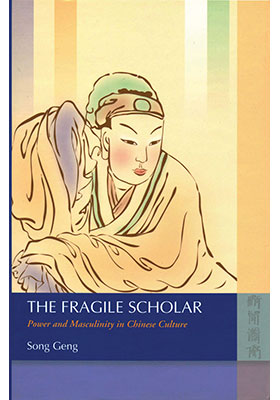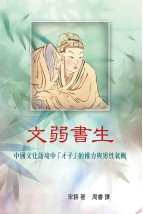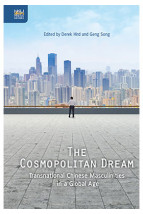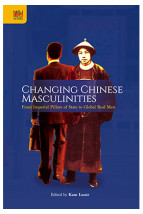The Fragile Scholar
Power and Masculinity in Chinese Culture
(文弱書生:中國文化語境中「才子」的權力與男性氣概)
ISBN : 978-962-209-620-2
January 2004
256 pages, 6″ x 9″
- HK$275.00
Leave your email so we can notify you when the book is available.
Ebooks
The Fragile Scholar examines the pre-modern construction of Chinese masculinity from the popular image of the fragile scholar (caizi) in late imperial Chinese fiction and drama. The book is an original contribution to the study of the construction of masculinity in the Chinese context from a comparative perspective (Euro-American). Its central thesis is that the concept of “masculinity” in pre-modern China was conceived in the network of hierarchical social and political power in a homosocial context rather than in opposition to “woman.” In other words, gender discourse was more power-based than sex-based in pre-modern China, and Chinese masculinity was androgynous in nature. The author explains how the caizi discourse embodied the mediation between elite culture and popular culture by giving voice to the desire, fantasy, wants and tastes of urbanites.
“Song Geng exemplified an impressive range of knowledge not only about the field of sinology but also about critical theories of gender. This book examines the historical legacy of the Chinese discourse of masculinity while incorporating discussions of various cultural and social institutions such as patronage, marriage, and the imperial civil service examination. His intellectual orientation toward an interdisciplinary studies of pre-modern Chinese literature is greatly appreciated. Some of the conclusions Dr Song drew from the materials on the caizi discourse will serve as the cornerstone for any future critical studies on Chinese masculinity.” —Jing Wang, S. C. Fang Professor of Chinese Language and Culture, and Professor of Chinese Cultural Studies, Foreign Languages and Literatures, Massachusetts Institute of Technology
“This is a most fascinating study of a most significant subject—the caizi figure in Chinese literature. I am especially impressed by the author’s subtle negotiation through a wealth of classical texts in Chinese literature which unfolds an unusual richness of texture and insight. It goes to show that Chinese masculinity, however ‘fragile’, is more than skin-deep but overlaid with layers of cultural nuances and tension. An original contribution to both gender studies and Chinese studies.” —Leo Ou-fan Lee, Professor of Chinese Literature, Harvard; Y. K. Pao Distinguished Visiting Professor, Hong Kong University of Science and Technology





